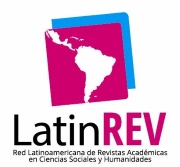Call for submission of articles for the dossier "40 YEARS OF THE HIV/AIDS EPIDEMIC: continuities, transformations and dilemmas in the responses and confrontations of a critical global event". To be published in issue 60 in December 2022.
Carlos Guilherme do Valle (Federal University of Rio Grande do Norte, UFRN)
Susana Margulies (University of Buenos Aires, UBA)
After four decades of outbreak of the global HIV/AIDS pandemic, then disseminated in more specific, localized epidemics, we continue with impacts and societal, cultural, political-governmental and epidemiological dynamics involving people, collectivities, organizations and institutions directly or indirectly affected by this serious public health problem. In the early years of AIDS in the 1980s, perplexities, insecures, doubts and fears revealed a language of co-production of a disease crossed by discourses characterized by the creation of moral and sexual panics, especially in relation to sexual diversity, but also to specific lifestyles and also to fears in terms of race/ethnicity and social class. The initial scientific difficulty of identifying a pathogen that caused the death of young people, especially homosexuals, seen as the main responsible for the spread of an evil, was marked, on the one hand, by the extreme limitation of effective therapeutic protocols, the difficulties of care and health care, often motivated by the stigmatization resulting from the moral panic installed, but, on the other hand, the slowness in establishing public health policies and the institutionalization of government agencies that face the severity of AIDS. This was evident both in "developed" countries and, say, in the "other", such as several Latin American countries. It can be said that the global character of AIDS as a pandemic, especially in the first two decades of its emergence, showed what would be a true critical event, articulating personal experiences to varying levels of social suffering, sociality and structural violence.
Since the 1990s, there has been a growing biomedicalization and pharmaceuticalization of HIV/AIDS, although all this has been present since the mid-1980s. The enormous investments in scientific research and the lucrative market that further strengthens the pharmaceutical industry of antiretroviral drugs was a concomitant process of intense mobilization of biosocial aids activism, involving people, organizations and associations of civil society. Since 1996, combined therapy has become the biomedical protocol advocated by science, medicine and HIV/AIDS activism, ensured by private or public models of access and distribution of medicines. A multiplicity of biomedical tests and technologies began to be used and lived routinely and daily by people living with HIV/AIDS, such as serological tests or viral load testing (PCR), which coexisted with dynamics and social interactions based on serological status and the formation of clinical or biosocial identities, in addition to the creation of biosocial or biopolitical worlds, collectivities and communities based on serological status and biological condition by the presence of a retrovirus in the body and in life.
Since then, especially in the 21st century, we are seeing reorientations around the prevention of HIV infection, no longer centered on the preventive model of "safer behavior" with the use of condoms (male and female). In the last ten years, we are observing, above all, the defense and regulation of protocols and models of prevention before or after exposure of HIV infection (PREP and PEP), now ensured through regulated public policies, for example in countrys such as Brazil and Argentina, access to antiretroviral drugs for people not infected with HIV, this evidences a significant change in the face of that prevention model that emerged from the first years of the epidemic, including as an urgent practical response to LGBT and HIV/AIDS activism. It is true that there were questions, already with a reasonable historical antecedent, of this preventive "behavioral" model based on "safe sex", whose criticisms had, however, restricted scope through stimuli and discourses favorable to bareback sex (without condom, "unsafe"), questioning the hygienism of HIV prevention protocols. Similarly, social mobilization and moral enterprises were taking place in concomitance, for tougher and more robust legislation to criminalize HIV infection as a new criminal type-level aimed at crimes of individual accountability when transmitting a disease without cure.
The current scenario of experiences and policies of living with HIV/AIDS exposes refractions of an already long-term historical process in which categories such as HIV undetectability presuppose the idea of "treatment as prevention", combined with a routine of tests and tests that molecularly monitor viral rates and regular routines (during a lifetime?) of management of HIV serological status (and also of other sexually transmitted infections). As before in the 20th century, the current context is presented through the heterogeneity and/or plurality of experiences of living with HIV/AIDS, recognizing social factors or markers such as gender, sexual diversity, class, ethnicity/race, generation/age, etc. All this evidences a serious public health problem whose experiences, mobilizations and responses are characterized by intersectionalities and societal or cultural pluralities.
For the dossier, we intend to gather articles that evidence in-depth empirical research, especially those in an early stage of analytical and methodological investment. We hope to receive article proposals made in Anthropology and other Social Sciences as well as in Public Health.
The authors must submit their texts, following the rules of the journal, through the https://periodicos.ufrn.br/vivencia/index portal until August 22, 2022. The figure is expected to be published for the second half of 2022. The journal Vivência publishes texts in Portuguese, Spanish, English and French. Therefore, foreign items will be welcome.
For more information, send a message to the e-mail vivenciareant@yahoo.com.br indicating as the subject of the message the theme of the dossier: "40 years of the HIV/AIDS epidemic".
It is essential that the authors observe the standards of the Vivência [in: https://periodicos.ufrn.br/vivencia/about/submissions] before submitting their proposals. Articles by doctors and those with master's title or professorship in co-authorship with doctors in the areas previously selected will be accepted.

 Português (Brasil)
Português (Brasil) English
English Español (España)
Español (España) Français (Canada)
Français (Canada)






